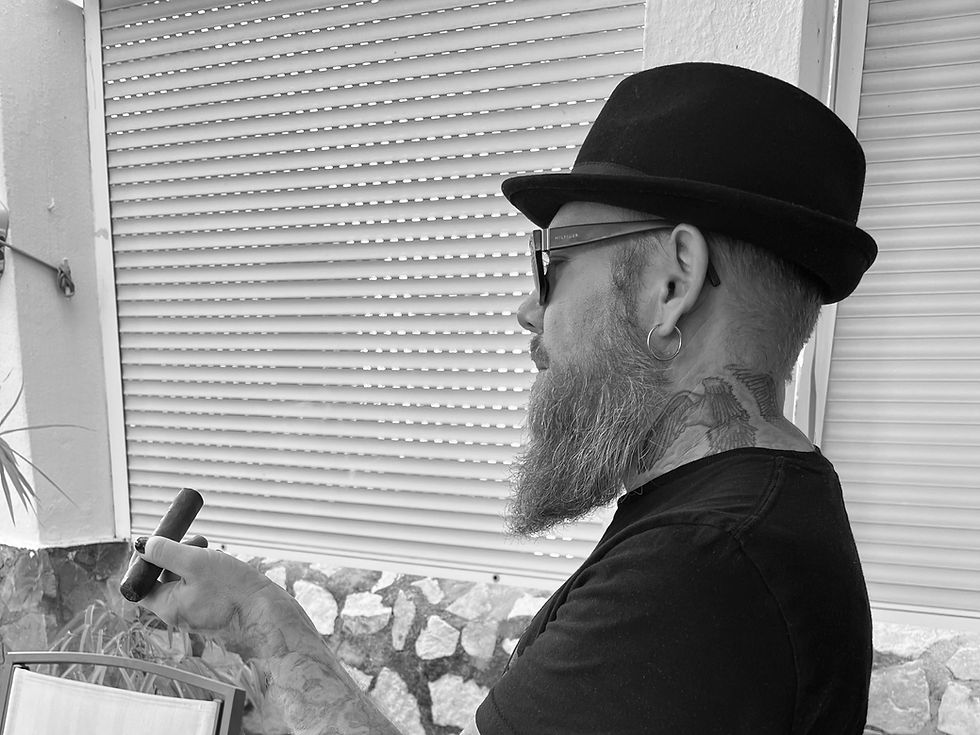Is AI-generated singing perfect?
- nicolaslinnala
- Aug 4, 2025
- 3 min read
Is AI-generated singing perfect?
The other day, I found myself reflecting on something pretty deep while mixing vocals for a track. There was something unusual about the performance – and no matter what I tried, it just wouldn’t sit right in the mix.
That’s when a thought hit me: will AI ever create the perfect vocal mix?Or more to the point – when will it?So, I decided to dig a little deeper, pop the hood open, and kick the tires a bit.
Mixing AI-generated music is a completely different beast compared to mixing a real, human vocal performance. There are a few small but crucial limitations that stop you from really having fun in the mixing process.
But let’s take it from the beginning. Let’s ask: what is a real vocal, really?
A vocal isn’t just sound. It’s energy created by the human body – born from emotion: sadness, joy, love, and everything in between. A singer doesn’t just “sing” – they tell a deeper story. They’re present. They give their all. They make themselves heard.
And before this gets too poetic, let’s get back to AI.
Interested in AI, music, and studio work?
In my blog, I write about how AI is changing music production and reshaping studio work.
If these topics spark your curiosity, join the mailing list – you’ll get notified as soon as a new post is out. No spam, just the good stuff.
So, what is an AI-generated vocal – and what is it not?
Well, it’s none of what I just described.An AI vocal is a collection of data – a mathematical prediction of what a voice should sound like.Sure, at times it can sound pretty good.When AI “sings,” it’s not really singing – it generates a sound that resembles singing, but isn’t the real thing.
AI models the voice and builds it artificially from scratch. The result can sound astonishingly realistic – yet there’s still something… off. Something’s missing.
What can – and can’t – you do to an AI vocal?
Here comes the more technical part, but it’s important.Let’s talk about one key element in mixing: saturation.
When you run a real vocal through saturation plugins – the kind that add harmonic distortion – the sound comes alive. It gains warmth, pressure, and grit. But with AI vocals, things get weird.When you try to saturate them, strange things happen.
Why? Because AI vocals don’t contain the same micro-details, transients, and resonances that real recordings do. Saturation doesn’t have anything to grab onto.The result often sounds muddy, broken – or even starts distorting in a weird way, as if it were clipping (even when it’s not).
So the AI-generated vocal ends up being overly clean and synthetic – technically too perfect. And when you add to that the lack of emotion, coldness, and absence of authenticity, you’re left with a sound that simply doesn’t live in the mix the way a real vocal does.
A good comparison might be AI-generated images.At first glance, they can look stunning – but when you really look, there’s no true realism.It’s the same with vocals – they don’t breathe.
So, is AI-generated singing perfect?
In some ways – yes. It’s clean, flawless, beautifully modeled.But in other ways, it’s so far from perfection it’s scary.
AI will undoubtedly keep getting better. But the real question is:will we eventually be able to shape AI-generated vocals however we want – and make them feel good to the ear and the heart?
That’s the real question: Is AI-generated singing perfect?It’s something each of us has to think about. Some people love it, some don’t hear the difference, and some absolutely hate it.Either way – this is the world we’re heading into.And maybe things get easier for all of us when we start accepting that AI is here to stay.
PS. Check out my shop page – you'll find T-shirts and samples, straight from the studio.

-Nicolas




Comments